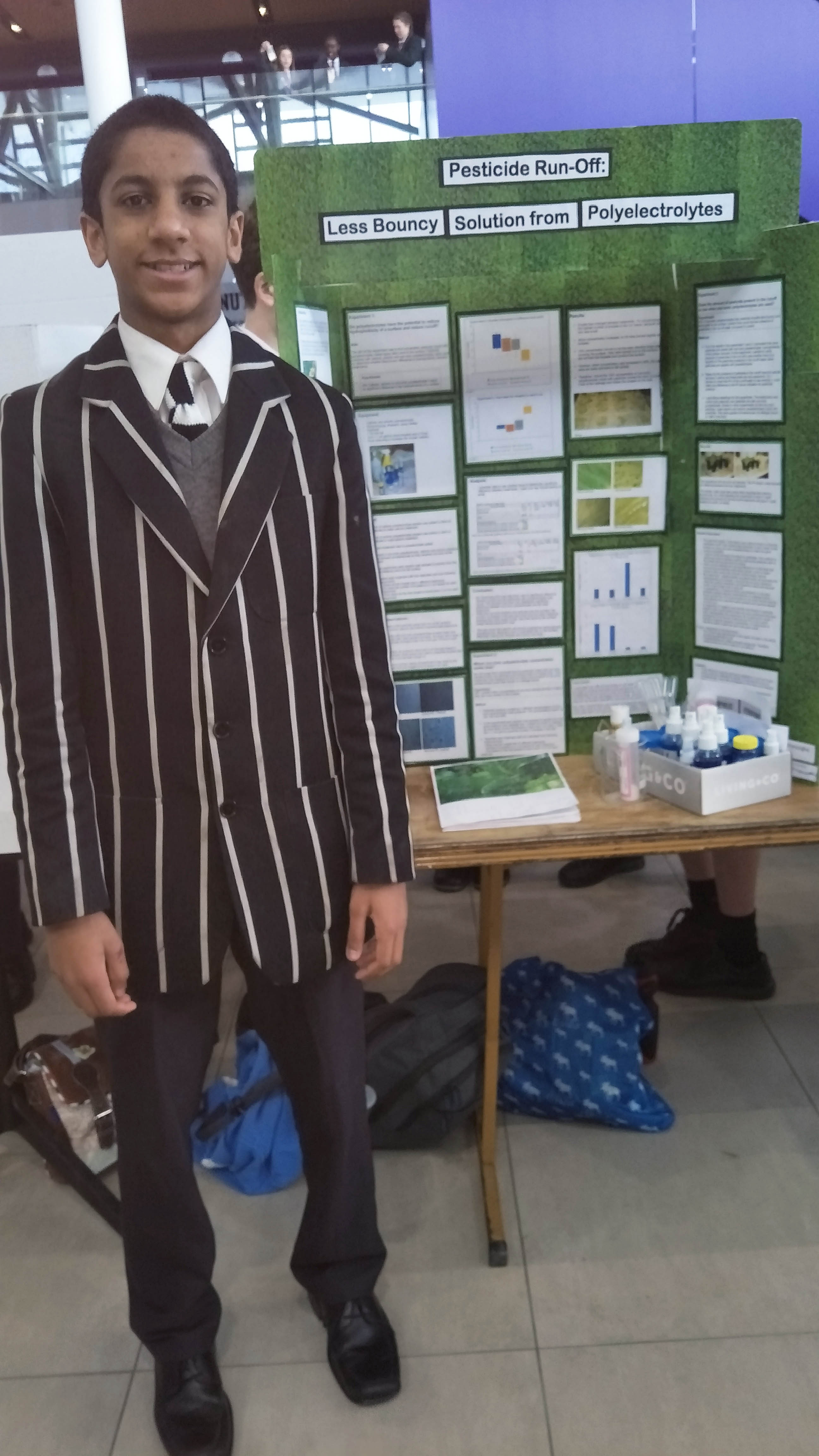A sticky solution for problem pollution
14 Sep 2018
In a highly competitive field, Year 9 student Thimeth Wijesinghe picked up seven prizes at the 2018 NIWA Canterbury-Westland Schools’ Science and Technology Fair, including second best in fair.
His project – Pesticide Run-off: Less Bouncy Solution from Polyelectrolytes – looks at the environmental damage caused by pesticide run-off and comes up with a cost effective and healthy way to tackle the problem. “New Zealand’s clean, green image, its rivers and environment, is being damaged by the effects of run-off from the pesticides used in agriculture. I wanted to tackle the problem at the first point of contact, make it stick instead of running off when the pesticide first touches the plant or the leaf.”
Thimeth found out why run-off occurs and then devised a plan. He contacted Fontis and Ixom water treatment specialists to discuss his theory and was delighted when they came on board. “I wouldn’t have been able to get hold of the polyelectrolytes without their help, they made all the difference.”
To prepare for the science fair, Thimeth did all the work and tested his theory at home. As it was so well received, he now plans to use some of his prize money to get it laboratory tested in order to further refine and advance his research.
Thimeth is creative, aware and focused on solutions. “Our environment is really important and we need to come up with ways to deal with the many significant issues we face. In science, sometimes the most novel ideas are the best ones. I like putting the puzzle pieces together, identifying a problem and trying to fix it.”
He says the fair is the perfect way for young people to get involved in and thinking about science. The fair was held at the University of Canterbury, in the Engineering Core and the Ernest Rutherford building, with judging taking place on Saturday 8 September and the prizegiving ceremony on Sunday 9 September.
Thimeth’s prizes
- UC School of Physical and Chemical Sciences – Outstanding Merit Award
- Canterbury Science Teachers’ Association – Year 9–10 Science First Prize
- NZ Statistical Association and Statistics NZ – Prize for entries with statistical merit (Year 9–10)
- Lincoln University – Prize for the best exhibits in the areas of Ecology, Agriculture, Horticulture, Environmental Science and Animal Science
- New Zealand Institute of Chemistry – Prize for excellence in chemistry research (Year 9–10)
- Environment Canterbury – Ecan School Award for the entry which best demonstrates ways to maintain or improve the region’s environment
NIWA – Second in science prize, second best in fair

